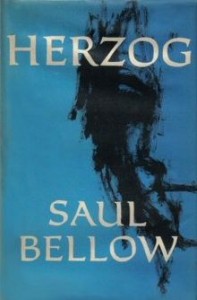 Herzog
Herzog
by Saul Bellow
Originally published by Viking Press, 1964
Buy from Amazon
In the lecture he delivered on the first day of classes at Wellesley College and Cornell University, Vladimir Nabokov tells of a Russian poet who was executed in 1921 because he would not stop smiling. Nikolai Gumilev died on an unknown day in August and, although his Soviet executioners did not know it, the crime for which he was first arrested was most certainly fabricated by their higher-ups. Still, Nabokov says, what truly irked “Lenin’s ruffians” was Gumilev’s steadfast smile, which he held even against the shock of the firing squad.
There is a cheerful morbidity in this anecdote that’s mixed from unpleasant truth, dark absurdity, and the inexorably joyous countenance of a man knowing he must die. There’s also a fundamental comedy of desperation on behalf of the Soviet goons who, at some point during the interrogations, must have flung up their arms up and said that if this poet won’t quit grinning then he has to go, so Gumilev unmindfully did.
This sort of comedy—with its helplessness, muddled terror, and insistent smile—is intertwined with the tragic in Saul Bellow’s fiction. Bellow intermingles sadness with laughter to create desperate comedies of hurt and self-humiliation, which attempt at first to allay pain through punchlines, by turning sorrow into farce. In art, the comic is usually superficial. Laughter is assigned the role of cure-all healer, a wheeler-and-dealer with the snake oil of stock gags and slapstick, where jokes are told to lighten the mood and reduce the gloom; yet Bellow pierces deeper.
For Bellow, laughter is not superficial, nor is it sorrow’s antithesis; for Bellow, laughter is the inherent human response to the incomprehensibility of life and all the flummoxing troubles therein. Comedy, then, becomes the involuntary sidekick that guides Bellow’s heroes who struggle closer to the crux of life’s inadequacies with vigor and a grin. The desperate comedy in Saul Bellow’s fiction forces the tragedy deeper by making it a little more palatable and accurate.
There’s a silly scene from Herzog that’s stuck in my mind for many years. It involves CPR and a monkey. Deep in the novel, Moses Herzog returns to Chicago to visit his young daughter who lives with his ex-wife. Before Herzog meets his daughter, he spends the night with an old friend, Luke Asphalter, a bachelor-zoologist who studies monkeys, and recently Herzog read in a magazine that when one of Asphalter’s subjects died he tried to revive it. “You must have been out of your mind, giving Rocco mouth-to-mouth respiration,” Herzog says. “That’s letting eccentricity go too far.” Asphalter says no one else’s death could have unraveled him the way Rocco’s did.
“You don’t mind if I smile,” Herzog apologized. “I can’t help it.”
“What else can you do?” Asphalter asks.
Is it mad to cherish an animal above all else? Is it insane that Asphalter says, “I was glad I had no wife or kids to hide these crying jags from,” because after Rocco died, he underwent a depression, quit showing at work, and let his beard grow so he’d better resembled the deceased simian? To Herzog it’s funny, devastating but funny, at least, he says, as “these painful emotional comedies” go.
It’s difficult to qualify the comedy in this scene—how it works, what to call it, what sort of reaction it requires; there are not one-word answers. There’s an element of black humor but it’s surpassed by Asphalter’s love and an element of absurdity that corrodes under the tears. There’s physical comedy in the memory of Asphalter attempting to resuscitate Rocco, though it seems less funny once Asphalter admits how much he needed the creature. The cartoon entertainment of a man giving CPR to a monkey mixes with the seriousness of loss. There’s death, loneliness, solitude, cordiality, and Moses Herzog’s continual bafflement as he tries to understand and fails. Asphalter says he’s been experimenting with different psychoanalytic treatments in an attempt to defeat his grief, but nothing helps. “Perhaps he was about to cry. I hope he won’t, thought Herzog. His heart went out to him,” Bellow writes. Then, as Asphalter describes how for one grief therapy session he pretended that he himself was dead—to overcome the sorrow of death by overcoming his own—Herzog thinks about Heidegger’s views and how “human life is far subtler than any of its models, even these ingenious German models. Do we need to study theories of fear and anguish?” This adds a tinge of humorous humility. The grand thinkers, as masterful as they may be, have no words to assuage the awfulness of the death of Rocco the monkey.
“You don’t mind if I smile?” “What else can you do?”
This exchange has guiding force. It’s the force of a smile that protrudes through, a smile mixed a startled, helpless laugh. The scene encapsulates the necessity of laughter, the deep soul-grunt of relief that laughter offers. Pain, loneliness, loss—these casual horrors are held at bay by the rebellious power of Herzog’s chuckle and grin. Laughter can stand up to misery and darkness; laughter is often an act of defiance. Shockingly, the worst of life can be shrugged off with a silly grin. “What else can you do?” These words have echoed in my mind for a long time. It’s a simple exchange, the kind that you could overhear on a bus or have with a friend about something very trivial or serious. Don’t mind if I smile? What else can you do? The facial expression that goes with “What else can you do?” is so particularly human it’s stunning.
Nabokov once described the Chekhovian hero as “a good man who cannot make good,” someone who “stumbles because he is staring at the stars.” One cold night in Chicago a while ago, Moses Herzog crashed on his friend’s couch. And there they were, two injured men laughing, two men who did their best but since when has that ever been good enough? The stars burn with infinite indifference to the plight of dreamers. The stars are beautiful but they cannot guide us.
“Unexpected intrusions of beauty. This is what life is,” Herzog thinks later, while he fills a sink with water and notices the “gray light” of the bathroom and the “almost homogenous whiteness” of the oval basin. The same holds for humor. Unexpected intrusions of laughter, of smiles, are what life is. They make the daily struggle slightly more bearable, knowing that at some point a chuckle, hearty haha, or quiet smile will arrive. Laughter is the necessary response to inexplicable loss and inevitable decay, a required reaction to all the regular and extravagant hurts that mark our days. What else can you do? Out of nowhere sometimes, like a ferocious roar, laughter will burst forth to remind us we are so fiercely, foolishly alive.
***
Alex Kalamaroff is a 26-year-old writer living in Boston. He works on the administrative team of a Boston Public Schools high school. You can read his other writings here or follow him on twitter @alexkalamaroff.

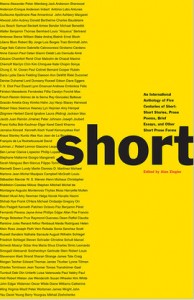 Short: An International Anthology of Five Centuries of Short-Short Stories, Prose Poems, Brief Essays, and Other Short Prose Forms
Short: An International Anthology of Five Centuries of Short-Short Stories, Prose Poems, Brief Essays, and Other Short Prose Forms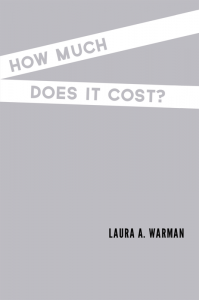 How Much Does it Cost?
How Much Does it Cost?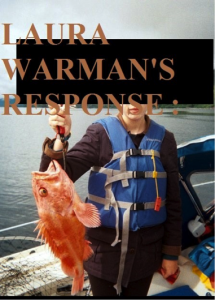
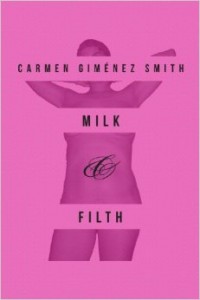 Milk and Filth
Milk and Filth Herzog
Herzog  Don’t Start Me Talkin’
Don’t Start Me Talkin’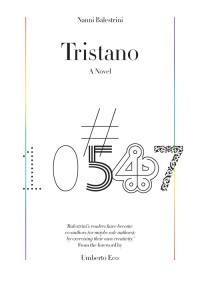 Tristano
Tristano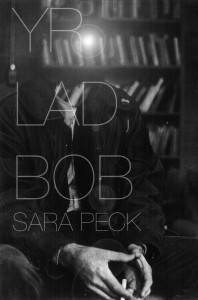 Yr Lad, Bob
Yr Lad, Bob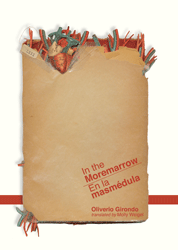 In the Moremarrow / En la masmédula
In the Moremarrow / En la masmédula Alibis: Essays on Elsewhere
Alibis: Essays on Elsewhere